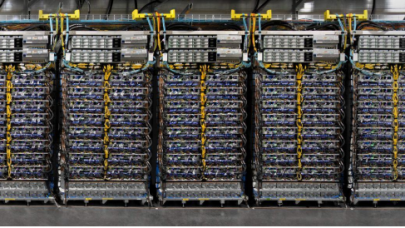
Google AI Supercomputer Shows the Potential of Optical Interconnects
April 10, 2023
There are limits on the speed of how fast copper wires can move data between computers, and a transition to light speed will ultimately drive AI and high-performance computing forward. Every major chipmaker is in agreement that optical interconnects will be needed to reach zettascale computing in an energy-efficient way. That opinion was... Read more…

Ayar Labs to Demo ‘Commercial-Grade’ 4Tbps Optical I/O Solution
March 1, 2023
Ayar Labs, founded in 2015, is pursuing optics as a means of driving higher interconnect speeds and efficiencies in computing. Now, the company is announcing th Read more…

Déjà Vu All Over Again
November 16, 2009
Never short on opinions, especially when it comes to high performance computing, Convey Computer Co-Founder Steve Wallach talked to HPCwire about the future of HPC and how lessons from the past can point the way for the future. Read more…

Intel Developing Optical Chip-to-Chip Interconnects
February 12, 2009
At the International Solid State Circuits Conference this week, Intel outlined its progress on CMOS photonics. Read more…

HP Calls for On-Chip Optics
January 28, 2009
An HP researcher says multicore processors will need to adopt optical interconnects over the next decade to deliver the bandwidth and programmability the computer industry needs. Read more…

- Click Here for More Headlines

Whitepaper
From Hallucination to Reality
As Federal agencies navigate an increasingly complex and data-driven world, learning how to get the most out of high-performance computing (HPC), artificial intelligence (AI), and machine learning (ML) technologies is imperative to their mission. These technologies can significantly improve efficiency and effectiveness and drive innovation to serve citizens' needs better. Implementing HPC and AI solutions in government can bring challenges and pain points like fragmented datasets, computational hurdles when training ML models, and ethical implications of AI-driven decision-making. Still, CTG Federal, Dell Technologies, and NVIDIA unite to unlock new possibilities and seamlessly integrate HPC capabilities into existing enterprise architectures. This integration empowers organizations to glean actionable insights, improve decision-making, and gain a competitive edge across various domains, from supply chain optimization to financial modeling and beyond.
Download Now
Sponsored by CGT Federal
Whitepaper
Why IT Must Have an Influential Role in Strategic Decisions About Sustainability
Data centers are experiencing increasing power consumption, space constraints and cooling demands due to the unprecedented computing power required by today’s chips and servers. HVAC cooling systems consume approximately 40% of a data center’s electricity. These systems traditionally use air conditioning, air handling and fans to cool the data center facility and IT equipment, ultimately resulting in high energy consumption and high carbon emissions. Data centers are moving to direct liquid cooled (DLC) systems to improve cooling efficiency thus lowering their PUE, operating expenses (OPEX) and carbon footprint.
This paper describes how CoolIT Systems (CoolIT) meets the need for improved energy efficiency in data centers and includes case studies that show how CoolIT’s DLC solutions improve energy efficiency, increase rack density, lower OPEX, and enable sustainability programs. CoolIT is the global market and innovation leader in scalable DLC solutions for the world’s most demanding computing environments. CoolIT’s end-to-end solutions meet the rising demand in cooling and the rising demand for energy efficiency.
Download Now
Sponsored by Lenovo
Advanced Scale Career Development & Workforce Enhancement Center
Featured Advanced Scale Jobs:
SUBSCRIBE for monthly job listings and articles on HPC careers.
HPCwire Resource Library
HPCwire Product Showcase
© 2024 HPCwire. All Rights Reserved. A Tabor Communications Publication
HPCwire is a registered trademark of Tabor Communications, Inc. Use of this site is governed by our Terms of Use and Privacy Policy.
Reproduction in whole or in part in any form or medium without express written permission of Tabor Communications, Inc. is prohibited.




























